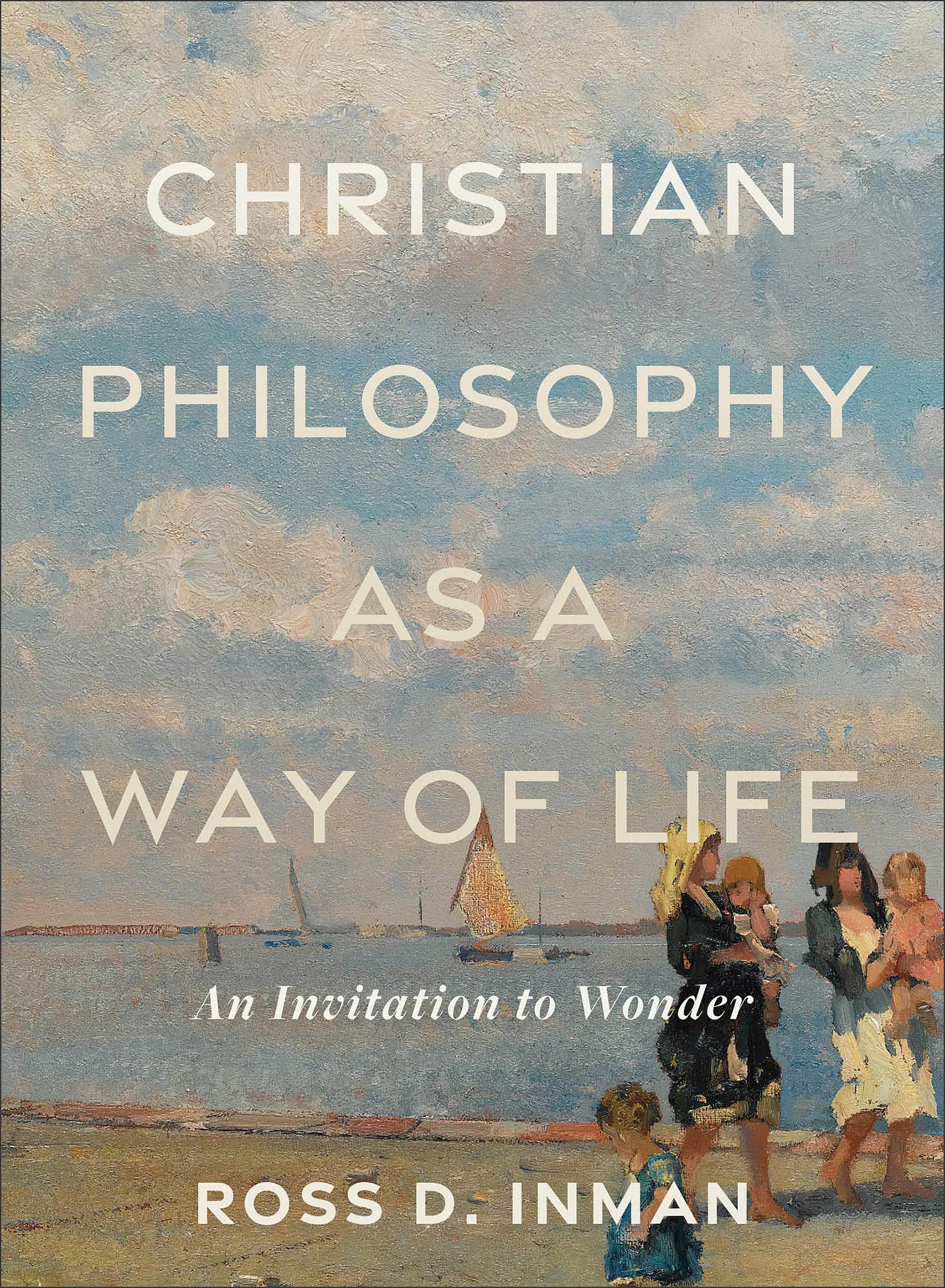The question of why believe in robust moral objectivity (“moral realism”) has been raised in recent years more and more. Jerry Walls and I are currently writing a book on the topic, which is appropriate, since answering the question well in short compass isn’t possible except for those already convinced about it. In this short entry I’m going to discuss just one aspect of this discussion—one of the genuine challenges of arguing for (or against) moral realism in our contemporary moment.
In the book we’ll canvass various challenges against moral realism and an array of evidential considerations in favor of it. We’ll also discuss several alternatives to moral realism, such as error theory (sometimes called nihilism), variants of expressivism (emotivism, prescriptivism, quasi-realism, etc.), and constructivism. I can’t do all that here.
Instead, I want to point out an interesting aspect of the whole discussion among those who see morality differently. Some have what we might call generally reductionist analyses of ethics, treating sturdy ontologies on which morality relies as a gratuitous indulgence. Often we see phrases among such folks like “obscurantist” and “metaphysical extravagance.” These are bad. Parsimony is their preference—the more stripped of substantive ontology or metaphysics a view is, the more likely it’s true.
Of course what’s animating their perspective on these matters is the idea that simplicity trumps. It’s the traditional concern of Ockham’s Razor: let’s get rid of anything we don’t need. If a deflationary or reductionist analysis of morality gets us all we want, then embrace that approach. Desacralize anything you can to avoid superstition or anything extraneous. If at all possible to square the features of morality with something like a naturalistic perspective, do it.
Of course the challenge faced by this approach is showing that nothing of importance is lost in the process of adopting simpler explanations. Applying a principle of parsimony assumes that the theories in question explain the relevant facts (at least roughly) equally well. I’ve always personally been struck by a line from William James, directed at the knights of the (Ockham’s) Razor, that whereas they feared superstition, he feared desiccation.
James’s concern had exactly to do with this worry that prematurely adopting too thin of an analysis results in losing too much of importance. And here there’s something at play almost like a psychological predilection: whereas some seem aesthetically drawn to pared-down analyses, others seem to naturally gravitate to richer pictures. By calling the pictures “richer,” I don’t mean to imply “truer,” even though I find myself in the latter category. By “richer” I mean something more like openness to something transcendent, something sacramental, something more than what naturalism can provide.
What I’m finding interesting about this phenomenon is that it largely functions pre-theoretically. It’s less a deliverance of our analysis than what inclines us toward accepting one analysis over another. There’s no knock-down argument in favor of naturalism on which folks convinced of it are basing their naturalistic bias. It rather tends to be an axiomatic assumption they bring to their study of ethics. And often theistic ethicists are theists prior to their ethical studies, and they naturally tend to read ethics in a way amenable to their worldview. In both cases, what then happens is that proponents of naturalism and supernaturalism can claim to find in ethics reasons for their ideological commitments to be bolstered. But what is often happening, I suspect, is that they are simply looking at it through the lens of their prior commitments. It’s hard not to, admittedly.
I’m not suggesting that this is always regrettable, nor that it’s very easy to avoid. It’s quite hard to avoid, in fact. What I’m suggesting, though, is that it would perhaps do us some good to realize we’re doing it more than we know. Doing so won’t stop us from doing it, but it might enable us to grasp better the way others see it differently.
Morality in a sense provides us something of a Rorschach test. What we see is often a function of what we already believe.
In his “Will to Believe,” William James had this insight too when it came to morality:
The question of having moral beliefs at all or not having them is decided by our will. Are our moral preferences true or false, or are they only odd biological phenomena, making things good or bad for us, but in themselves indifferent? How can your pure intellect decide? If your heart does not want a world of moral reality, your head will assuredly never make you believe in one…. Moral skepticism can no more be refuted or proved by logic than intellectual skepticism can. When we stick to it that there is truth (be it of either kind), we do so with our whole nature, and resolve to stand or fall by the results. The skeptic with his whole nature adopts the doubting attitude; but which of us is the wiser, Omniscience only knows.
Blaise Pascal echoed a similar point when he talked about divine hiddenness: “There is enough light for those who only desire to see, and enough obscurity for those who have a contrary disposition.”
Having made this point, allow me now to say just a brief word why, rather than being averse to the transcendent, I remain eminently open to it. I know parsimony is all the rage for some—and I’m in principle open to not “multiplying entities unnecessarily”—but I don’t see a rabid commitment to desacralize as a virtue, intellectual or otherwise. Honestly, it just doesn’t ring with truth for me.
Recently I’ve been reading Os Guinness’s Signals of Transcendence, and it’s reminded me of why my predilections run in a quite different direction. Acts of selfless altruism, sunsets so beautiful as to melt the heart, a mother’s love for her child, a deep assurance that good will defeat evil in the end and the scales of justice balanced, and a thousand other moral, aesthetic, and existential moments that fire my imagination and captivate my heart convince me there’s more to life than meets the eye. Not less.
Is this a knock down argument in favor of something like robust realism? By no means. We’re none of us mere logic choppers; for each of these potential signals of transcendence, a reductionist analysis is on ready offer. But cultivating ears to hear and heed such signals is a helpful prerequisite to at least retain openness to their potential evidential significance.
— David Baggett is Professor of Philosophy and Director of the Center for the Foundations of Ethics at Houston Christian University. He is the author or editor of about fifteen books, most recently Telling Tales: Intimations of the Sacred in Popular Culture written with Marybeth Baggett.
Image by PublicDomainPictures from Pixabay
[sponsored]
Don't Follow Your Heart
Boldly Breaking the Ten Commandments of Self-Worship
In Don't Follow Your Heart, Thaddeus Williams debunks the “ten commandments of self-worship,” which include popular propaganda, like:
#liveyourbestlife: Thou shalt always act in accord with your chief end—to glorify and enjoy yourself forever.
#followyourheart: Thou shalt obey your emotions at all costs.
#yolo: Thou shalt pursue the rush of boundary-free experience.
Williams builds a case that this type of self-worship is not authentic, satisfying, or edgy. Instead, it’s rehashing what is literally humanity's oldest lie. He calls on a new generation of mavericks and renegades, heretics who refuse to march in unison with the self-obsessed herd. With a fascinating blend of theology, philosophy, science, psychology, and pop culture, Williams points us to a life beyond self-defeating dogmas to a more meaningful life centered on Someone infinitely more interesting, satisfying, and awesome than ourselves.
“Don't Follow Your Heart is a bold, timely, and enjoyable read. Williams takes the top ten common 'commandments' permeating our culture and systematically shows how they each lead (surprisingly) to misery and brokenness. This is a book I will be recommending wholeheartedly to the next generation.”
— Sean McDowell, Ph.D., apologetics professor at Biola University, popular YouTuber, author of A Rebel’s Manifesto
See our recent excerpt from Don’t Follow Your Heart here.
Find Don’t Follow Your Heart at Amazon, Zondervan, and other major booksellers.
"...LIKE GOD?": Post Modern Infatuation With New Age and Neo-Spiritism
“In this thorough and well-researched work, David Sonnesyn brings a lawyer’s mind to the task of exposing and challenging the leading false worldviews of our day. He leaves no heresy unexposed and exposes all of them to the liberating truth of Christianity.”
— Douglas Groothuis, Ph.D., Professor of Philosophy and Apologetics at Denver Seminary, author of Christian Apologetics: A Comprehensive Case for Biblical Faith; Walking Through Twilight: A Wife’s Illness—A Philosopher’s Lament; Philosophy in Seven Sentences; and twelve other books.
Find . . . Like God? at Amazon and other major booksellers.
Christian Philosophy as a Way of Life
An Invitation to Wonder
Philosophy is often seen as anything but practically relevant to everyday life. In this brief, accessible introduction, Ross Inman explores four hidden assumptions that lurk behind questions involving philosophy's relevance. He shows that philosophy is one of most practical subjects of study, for it satisfies our deep human need to make sense of it all.
This book recovers a more classical vision of Christian philosophy as an entire way of life. Inman shows that wonder is the distinctively human posture that drives and sustains the examined life and makes a compelling case that philosophy is valuable, practical, and significant for every aspect of Christian life and ministry. Living philosophically as a Christian enables us to be properly attuned to what is true and good in Christ and to orient our lives to the highest goals worth pursuing.
This is an ideal introductory book for students of philosophy, Christian thought, and worldview studies. It will also work well in classical school, high school, and homeschool contexts.
“To be completely honest, Christian Philosophy as a Way of Life is one of the best (if not the best) introductions to philosophy I have ever read. I was taking notes all the way through! Inman presents philosophy as an immensely practical field with tremendous benefits for living a flourishing, healthy life. It is chock-full of new ideas and rich, life-giving help, all done in a conversational style. Wow, I love this book!”
— J. P. Moreland, Distinguished Professor of Philosophy, Talbot School of Theology, Biola University; author of Love Your God with All Your Mind: The Role of Reason in the Life of the Soul
See our recent excerpt from Philosophy as a Way of Life here.
Find Christian Philosophy as a Way of Life at Amazon, Baker Academic, and other major booksellers.
Advertise in The Worldview Bulletin
Do you have a ministry, book, course, conference, or product you’d like to promote to 6,831 Worldview Bulletin readers? Click here to learn how. We’re currently booking for November-December.
Support The Worldview Bulletin
Your support makes The Worldview Bulletin possible! We couldn’t do this without the support of you, our readers. We would be grateful for your help in any of the following ways, which allows us to continue providing our readers and the world with the very best in Christian philosophy, apologetics, and defense of the Christian worldview.
Subscribe to receive regular articles from our team only available to paid subscribers, and gain access to our full archive of scores of past articles and new videos.
Give a gift subscription to a family member or friend who would benefit, or subscribe a group of four or more and save 25%.
Make a one-time or recurring donation.
“I just wanted to give a big shout out to you for creating this awesome newsletter. . . . I read it regularly with great joy and gain, not least because the articles manage to be intellectually thorough whilst spiritually stimulating. And my standards are high, being a professional philosopher.”
— Alin C., Lausanne, Switzerland
“It has made such a difference to me to realise that my Christian faith is intellectually respectable.” — Duncan Cooke, M.D.
“The Worldview Bulletin shines a brilliant light of truth in a darkening world. These authors, who are experts in their field, consistently provide logical, rational, moral and most importantly biblical answers, in response to the deceitful narratives we are bombarded with daily. I have found it a great source of enlightenment, comfort, and inspiration.”
— B. Shadbolt, New South Wales, Australia
“Staffed by a very respected and biblically faithful group of Evangelical scholars, The Worldview Bulletin provides all of us with timely, relevant, and Christian-worldview analysis of, and response to, the tough issues of our day. I love these folks and thank God for their work in this effort.”
— JP Moreland, distinguished professor of philosophy, Talbot School of Theology, Biola University, author of Scientism and Secularism: Learning to Respond to a Dangerous Ideology (Crossway)
“The Worldview Bulletin is a must-have resource for everyone who’s committed to spreading and defending the faith. It’s timely, always relevant, frequently eye-opening, and it never fails to encourage, inspire, and equip.”
— Lee Strobel, New York Times bestselling author of more than forty books and founding director of the Lee Strobel Center for Evangelism and Applied Apologetics
“I find The Worldview Bulletin very stimulating and would encourage all thinking Christians to read it.”
— John Lennox, emeritus professor of mathematics, University of Oxford, emeritus fellow in mathematics and philosophy of science, Green Templeton College, author of Cosmic Chemistry: Do God and Science Mix? (Lion)
“The Worldview Bulletin is a wonderful resource for the church. It’s timely and helpful.” — Sean McDowell, associate professor in the Christian Apologetics program at Talbot School of Theology and author of The Fate of the Apostles: Examining the Martyrdom Accounts of the Closest Followers of Jesus (Routledge)
“Are you looking for a way to defend your Christian worldview? If so, look no further. At The Worldview Bulletin you’ll encounter world-leading scholars dispensing truth in a digestible format. Don’t miss out on this unique opportunity to engage in this meeting of the minds.”
— Bobby Conway, Founder of The One-Minute Apologist, author of Does God Exist?: And 51 Other Compelling Questions About God and the Bible (Harvest House)
“The Worldview Bulletin is a wonderful resource for those desiring to inform themselves in matters of Christian apologetics. Learn key points in succinct articles written by leading scholars and ministers. All for the monthly price of a cup of coffee!”
— Michael Licona, associate professor of theology at Houston Christian University and author of Why Are There Differences in the Gospels? What We Can Learn From Ancient Biography (Oxford University Press)





